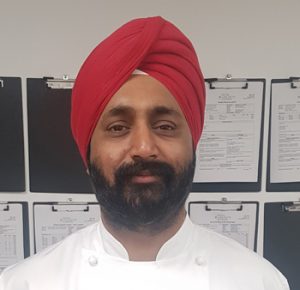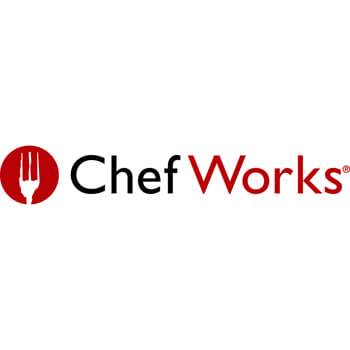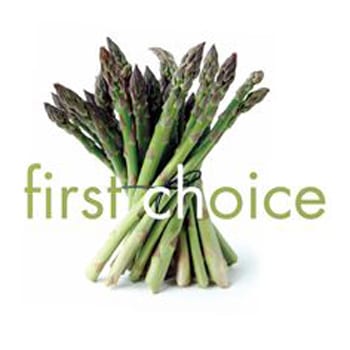Chef of the Week: Gurpreet Dham, Executive Sous Chef at Royal Lancaster London

How long have you worked at your current restaurant?
One year at Royal Lancaster London Hotel. Assisting the Executive Chef in managing the kitchens of the five outlets with two main restaurants, one being 2 rosettes, fourteen cover private dining room and two ballrooms with the capacity of 1000 covers in each. Overseeing over a hundred employees and catering for all the hotel staff, totalling 400 employees.
Where did your passion for cooking come from and where did you learn your skills?
Necessity brought the passion. Lost my mum at very young age and I started cooking for us at home. That was me with a knife and spatula beginning my journey unknowingly that one day I will be cooking for 1000’s a day alongside my brigade of 50 chefs.
Learning is an eternity; I am still learning. But I developed my skill and knowledge from the time I joined Hospitality Management studies and learnt to cook whilst training and working for premium hotels like Taj Group, JW Marriott etc.
What do you enjoy most about being a chef?
Every dish is unique. I love playing with ingredients their combination and magical outcome gives me pleasure. Walking in the kitchen makes feel like walking in my own kingdom. Elevates my inner pride when I know people sitting in the restaurant are not just paying for the food I am going to cook, they are also investing their trust in a stranger. And that is one hell of a responsibility.
Name three ingredients you couldn’t cook without.
Maldon Salt, Malt Vinegar, freshly cracked black pepper.
Which piece of kitchen equipment couldn’t you live without?
My Favourite silicon spatula.
What food trends are you spotting at the moment?
Earlier food trends were only driven by the customer demand, local availability of the material, festivities and seasonality. Which is still the case to an extent but there is a lot of influence of media and marketing driving the trends to a direction. Social media is playing a greater role in dictating the term of every upcoming trend. However, buy British, produce local, ‘sustainability’ are the current key drivers and I am with them too.
What do you think is a common mistake that lets chefs down?
When a chef comes to a stage where he forces the audience to eat what he cooks, rather than cooking what they want to eat.
What is your favourite time of year for food, and why?
Personally, I like spring – it’s not only the time when you get most of the ingredients at its best, it is also the best time to go out and eat in the natural environments, like garden, lakes, beaches etc. But alongside this the whole fundamental of seasonality also lies, changes in climate, weather brings changes in crop. Every season brings its beauty in food, whether it’s the most nutritious asparagus in spring or fibre rich root vegetables in Autumn/Winter.
Which of your dishes are you most proud of?
I personally do not like to answer this question as I am passionate about food and food is my life, every dish I create is like my new baby and I do not love one more than other, Its practically impossible to choose just one dish. A menu is created like a poem, every dish compliments each other, it helps fill the gaps in between, create the rhymes. Each dish is carefully chosen and well tested, because they are then going to go out and campaign for you, about how good we cook and what efforts we take to create such a menu, which does not only bring the business to the entrepreneurs but also brings the pleasure and satisfaction to the connoisseurs.
If I still have to name one, I like my ‘Surf and turf’ its fillet steak, with subtly cooked lobster, heritage baby carrots, petite fondant potatoes, horseradish gel and port jus.
How do you come up with new dishes?
Believe it or not it’s a process which always keeps running in my subconscious mind. And it happens with most of the chefs. What we see, what we experience and what is required comes all together like a recipe in a mind and we start penning down the dishes. Now a days I encourage my young brigade a lot to put the suggestion on the table ad we will work together improvise it and then put it in the plate.
Who was your greatest influence?
My Elder brother Ranjeet singh who looked after us after we lost our parents at a very young age. If it was not him influencing and motivating me to study, now I would have been repairing cycles in the bylanes of India. He is my role model.
Tell us three chefs you admire
Marco Pierre White, the starter of this game. Heston Blumenthal, who looked at the chopping board from an altogether different prospective and took the food down to its most basic stage of cooking. And Chef Ryan Matheson (Executive Chef, Sea Containers) he is not just a very good chef he is a wonderful human being to and a friend.
What is your favourite cookbook?
My home library is full of books, all of them are good. But the books I more frequently refer are, The Escoffier, Larousse Gastronomique, Modernist Cuisine. But one book I strongly recommend every chef should have is ‘The Flavours Thesaurus’ by Niki Segnit. A very good guide for combining of flavours and pairing of ingredients.
Who do you think are the chefs to watch over the next few months?
Well in this current Lockdown scenario everyone has become chef and are making YouTube channels and videos. Its interesting that cooking rates at the top when staying at home and keeping yourself busy is the requirement. I find it interesting to see what Atul Kochhar is doing next.
What’s been your favourite new restaurant opening of the last year?
I think the latest best thing happened to London restaurant industry is opening of Dishoom restaurants all over the city and beyond. I do not specialise in Indian cooking apart from cooking for friends and family. But Dishoom brings back all the memories about my hometown Mumbai (Bombay). Its décor, ambience and the delicious food. And I believe they are getting their fair share of popularity and fame for the quality of food and service they deliver.











